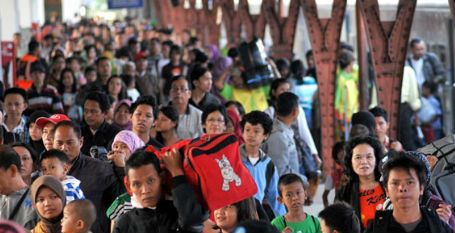The report was launched on June 17 and while presenting it, prominent gay rights activist Dede Oetomo, said. “For some of us, family is hell,” citing the story of “a father who tells your uncle to rape you because you’re a lesbian.”
The report documents several such stories like that of a 23-year-old gay student at an Islamic teachers college who was humiliated in front of his class for being effeminate. “If he’s still feminine, let’s beat him up until he becomes sane,” his lecturer told the class.
A 32-year-old lesbian activist from Bandar Lampung, who after being outed in the media, was dragged to a Muslim cleric and a shaman to be “cured of the deviant disease.”
The report was a product of a dialogue held in June 2013 in Bali, part of a regional initiative entitled “Being LGBT in Asia” that covers Indonesia, Thailand, the Philippines, Vietnam, Cambodia, China, Nepal and Mongolia.
The report is the most comprehensive to date, covering the history of LGBT in Indonesia, LGBT advocacy, an overview of LGBT human rights, laws, policies and abuse.
It also documents the lack of protection of LGBT rights in employment and housing, education, family affairs and social and cultural attitudes and those anti-LGBT biases prevalent in media and politics.
The report states that the capacity of LGBT organizations has developed significantly since Dede founded Lambda, the first gay rights organization in Indonesia, in 1982. By 2013 there were two national networks of LGBT organizations, and 119 organizations in 28 of the 34 provinces across Indonesia.
This notwithstanding, LGBT people still face discrimination in many areas and is especially true for the lower classes, the report said.
“It is not farfetched to say that LGBT rights depend on how Indonesia as a nation resolves its multifarious dilemmas in figuring out its nationhood,” said the author of a thejakartapost.com opinion piece that cited the report.
Prejudices against the LGBT community are largely formed by Islam, whose followers make up about 90 percent of Indonesia’s 250 million people.
However, Indonesia is not an Islamic country and the national criminal code does not prohibit private, non-commercial same-sex relations between consenting adults.

